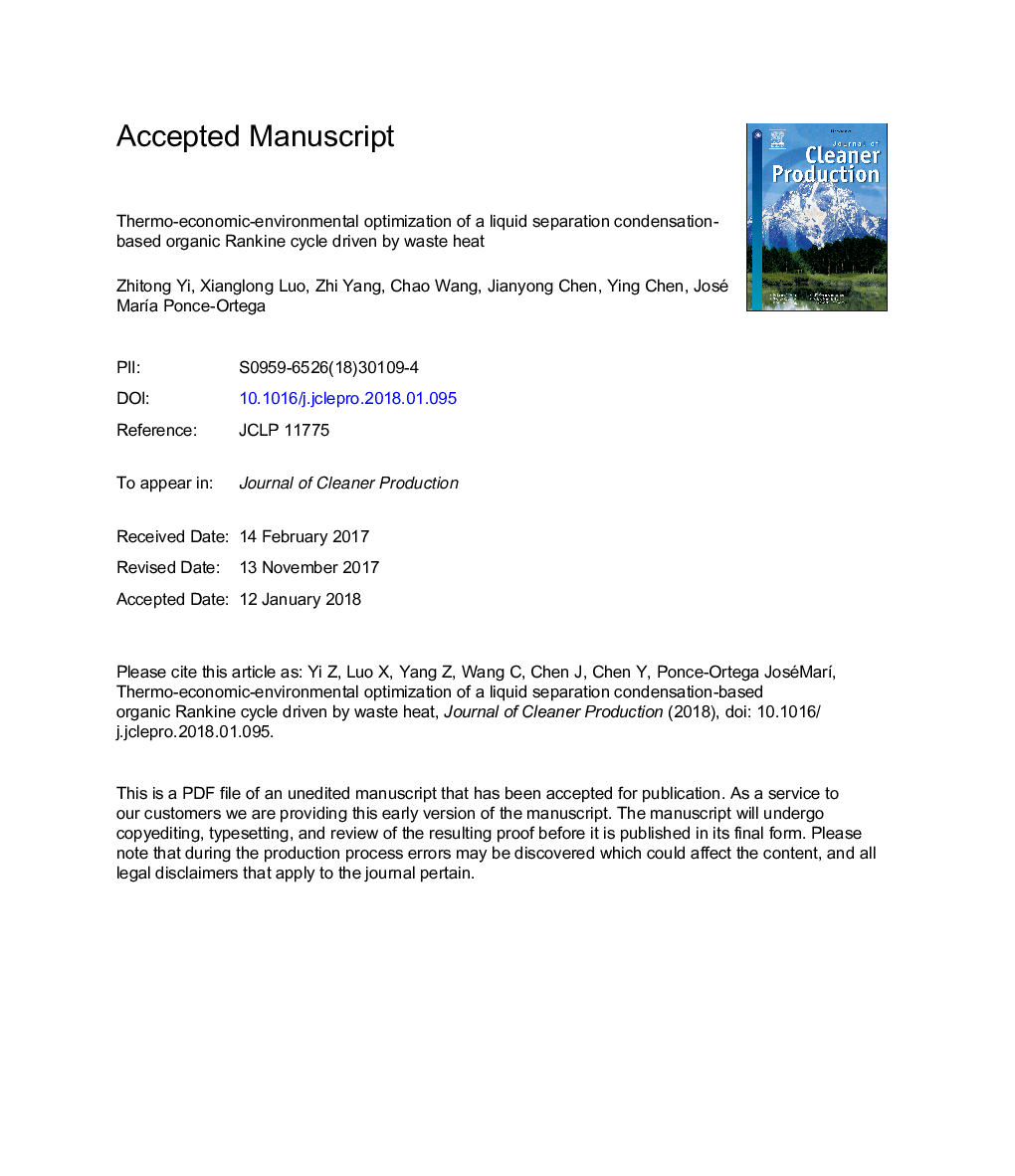| Article ID | Journal | Published Year | Pages | File Type |
|---|---|---|---|---|
| 8096644 | Journal of Cleaner Production | 2018 | 25 Pages |
Abstract
Organic Rankine cycle (ORC) is a promising thermal-to-power conversion technology utilizing low enthalpy renewable resources or waste heat energy. The coupling of environmental impact analysis and thermo-economic optimization is effective in evaluating and improving the comprehensive performance of the ORC. In the present study, a thermo-economic-environmental analysis and optimization methodology is proposed for the design of a waste heat driven ORC. A multi-objective mathematical programming model integrating the environmental impact and thermo-economic performance is formulated for the simultaneous optimization of the component configurations and operation parameters for a waste heat driven ORC. The objective functions include the minimization of the environmental impact and the maximization of the net power output. The specific investment cost is used to evaluate the economic performance of the ORC. A previous developed solution strategy is applied to solve the single objective optimization problem and the ε-constrained method is applied to solve the multi-objective optimization model. A case study is elaborated to test the proposed methodology and the formulated model. The single objective optimization results demonstrate the contradiction between the environmental objective and the thermo-economic objective. The trade-off solutions are achieved by multi-objective optimization. The Pareto-frontier is elaborated to show how the material allocation, component configuration, and operation parameters are influenced by the objective functions. Finally, a sensitivity analysis of the life cycle inventory of raw materials on the optimization results is conducted.
Related Topics
Physical Sciences and Engineering
Energy
Renewable Energy, Sustainability and the Environment
Authors
Zhitong Yi, Xianglong Luo, Zhi Yang, Chao Wang, Jianyong Chen, Ying Chen, José MarÃa Ponce-Ortega,
